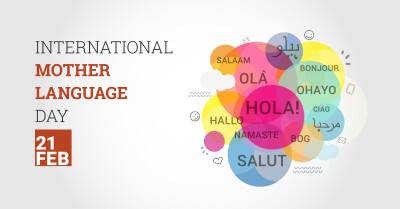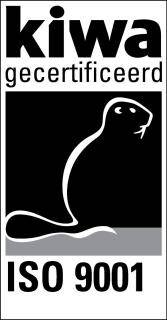
International Mother Language Day
This Sunday is International Mother Language Day, a worldwide event that takes place on the 21st of February every year. But how did this day ever come about, and why was the 21st of February chosen? Diving into the history books, we can find some good reasons.
UNESCO launched this International Day in 1999 and the UN General Assembly adopted the proposal in 2002. This international day has three goals: to promote linguistic diversity, cultural diversity and multilingualism.
Initiative
The idea to celebrate International Mother Language Day was initiated by Bangladesh. In Bangladesh, the day the Bengali people fought for the recognition of the Bangla language is commemorated on the 21st of February. This day is also celebrated in West Bengal, India.
The origins of International Mother Language Day take us back to the post-World War II period. When Pakistan was founded in 1947, it was geographically separated into two parts: East Pakistan (now Bangladesh) and West Pakistan (now Pakistan). The two parts were very different in culture and language.
Mass protests
In 1948 Pakistan's then government declared Urdu the only national language of Pakistan, although the majority of the people of East and West Pakistan spoke Bangla (or Bengali). The people of East Pakistan revolted and demanded that Bangla be at least one of the national languages, along with Urdu. The claim was first voiced by East Pakistan, at Pakistan's founding meeting on the 23rd of February 1948. In order to quell the protests, the Pakistani government banned public demonstrations and gatherings.
Rare event
Dhaka University students refused to abide by this ban and organised massive demonstrations and gatherings with the support of the public. On the 21st of February 1952, police opened fire on one of these gatherings. Many were injured or killed. It was a rare event in history: people sacrificing their lives for their mother tongue.
Since then, Bangladesh has always commemorated International Mother Language Day as one of their days of tragedy. On this day, many people visit the Shaheed Minar, a monument in memory of the language martyrs, to express their deep sorrow, respect and gratitude. International Mother Language Day is now a national day of remembrance in Bangladesh. East Pakistan's continued linguistic and cultural repression eventually resulted in the country's secession and the founding of Bangladesh in 1971.
Resolution
Rafiqul Islam and Abdus Salam, who were then living in Vancouver, Canada, proposed the resolution. They wrote a letter to then UN Secretary-General Kofi Annan in January 1998, urging him to take steps to save the world's languages from extinction by declaring an International Mother Language Day. Rafiq suggested the 21st of February, to commemorate the killings of 1952 in Dhaka during the language movement.






